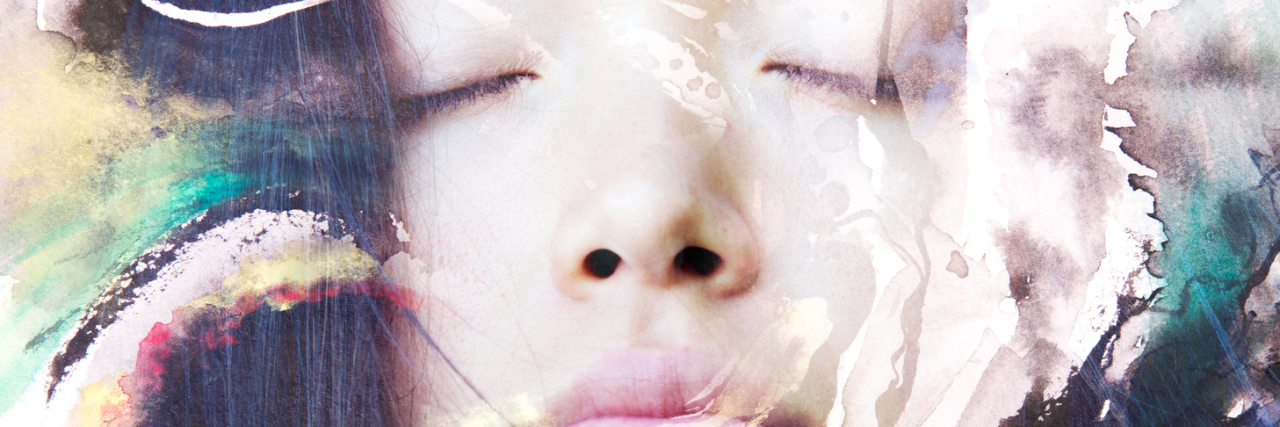The Most Powerful Question to Ask When Someone You Love Is Dissociating
“What can I do to help you during those moments?”
As someone living with a mental illness, this is the most powerful question someone can ask. This is what my girlfriend asked me when I told her I dissociate at times. It was a relatively new relationship when I told her this, so why did I decide to tell her so soon?
I felt this was one of the things she needed to know quite early on. Especially since I struggle most with dissociation in new, highly stimulating and stressful situations. I wanted her to know if I suddenly become quiet and distant, or seem “spaced out,” it wasn’t personal. I don’t want her to think I’m withdrawing from her, or that she did or said something wrong.
I believe in being open, honest and authentic. I am used to being the complete opposite. But once I started taking my mental health into my own hands, I discovered there’s a better way. I don’t have to fight alone. It’s OK to open up to others and be vulnerable. It’s OK to feel what I feel. Feelings aren’t facts, but they’re still valid.
There are days I wish I could go back to those times when I was shut off from the world. Back in my protective cocoon. Being vulnerable and opening yourself up to connection with others is hard, especially when it’s not your default “setting.” Thankfully, those moments of wanting to hide away again don’t last long.
I’m not ashamed of having borderline personality disorder (BPD). I’m not going to hide it anymore. I obviously don’t go around advertising the fact. But if I feel a relationship is developing, I think it’s important to lay it out on the table before I become too emotionally invested.
Dissociation is one of the criteria for BPD, and is a symptom I’m intimately familiar with. People experience dissociation differently, and it even differs from one episode to the next. So what does it look and feel like for me? Here are some examples:
This is what depersonalization (sense of detachment from self) and derealization (sense of detachment from the environment) feel like for me:
My body doesn’t feel like my body. I don’t belong in this skin. I don’t recognize myself. I feel hollow and empty — a shell. When I talk, it’s as if I’m hearing someone else talking. Sometimes it’s as if I’m looking down on myself. As if my body and soul are detached from one another. I’m not aware of the space my body is occupying. It’s the feeling of being stuck in a dream. Floating and looking down on everyone and everything. The feeling of being detached from the world. As if I’m watching everything on a screen. Nothing seems real. If people are talking, I either can’t make out what they’re saying, or they sound miles away. There can be a sense of being lost and confused. Not quite sure where I am, what time it is. Everything appears to be moving in slow motion. It can be a scary place to be in. And it’s extremely unsettling.
Dissociation happens when I’m in a highly stressful situation, and/or have too many overwhelming feelings. I just shut off. It’s not a conscious choice. It happens automatically.
So, how can you help someone who is dissociating?
Some people don’t like to be touched when in that space. For me though, touch is the one thing that helps the most. Having someone running their hands over mine, or over my arm for example. If you’re not sure, it’s OK to ask the person whether you can touch them.
Ask questions. For example, if you’re holding the person’s hand, “how does my skin feel?” “Reorienting information” is also helpful. Tell them exactly where they are, why they’re there, etc. Even if they are aware of this information (sometimes, if the dissociation is particularly bad, we might not even remember), it helps to hear it. Get the person to describe what they can see in front of them. It helps bring our awareness back to our immediate environment. During one of the sessions I had with an occupational therapist, where I was dissociating, she got me to look around the room, and asked a lot of questions. Things such as, “how many items can you find that contain the color blue?”
Having said all this, I believe the best thing to do is to speak to the person you want to support. Ask them what helps them. If they’re not sure, you can figure it out together.
If you’re the one experiencing dissociation, how can you help yourself through these moments?
Take a look around you and pick a color or shape. How many items can you find with that color? That shape? Our senses are powerful, so use them. Carry a small item around that you can hold in your hand. Describe the texture. Is it light or quite heavy? Any strong sensation or smell can help as well. Keep strong mints on hand. If you’re prone to dissociation, have a plan in place. Keep in mind it can take a while to start feeling grounded again. It rarely happens immediately. There’s no time limit to dissociation. It’s important to realize what’s happening and start working on grounding yourself, or reaching out to someone for help, as soon as possible.
Over the past year, I’ve learned how to ground myself, but sometimes I’m still unable to. And that’s when it’s important to have someone who knows you and cares about you, help ground you. Don’t be afraid to ask for help.
Do you have any additional tips for dealing with dissociation, or helping someone experiencing it? Let me know in the comments.
Getty Images photo via Victor_Tongdee

